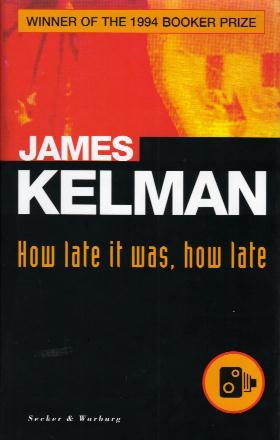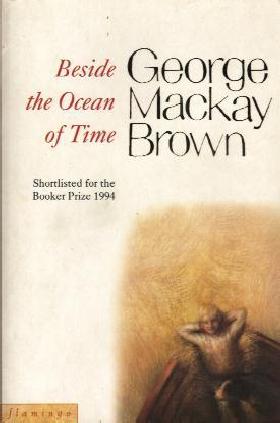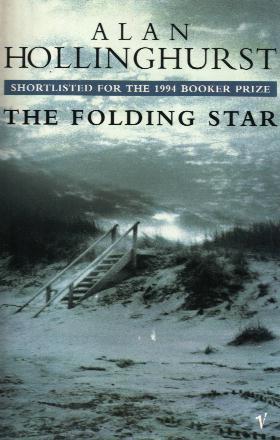
James Kelman
The following novels constitute the shortlist for the 1994 Booker Prize:
Notable Omissions from the 1994 Shortlist

|
How Late It Was, How Late James Kelman |
Dustjacket synopsis:
"An ex-convict has returned to Glasgow to make some sort of life for himself. He does a bit of
this and that, mainly shoplifting. His life isn't great, but its not impossible, although he
could return to England where there might be a chance of a job. This Sunday morning he awakens
down a lane after a two-day drinking session. And hour later he has been jailed. The police
hold him for questioning, release him eventually. The problem is he has become blind. OK,
things have been done to him, but he must also have been doing things himself. He remembers a
row with his girlfriend but she seems to have disappeared; then there's the old mate he
bumped into in some pub. And now the police want him for further questioning, apparently in
connection with 'politics and violence'. One thing he does know: from now on, whenever he moves
it be cautiously; the trouble is this being blind, it's not straightforward, neither for
himself nor the state authorities...
"How Late it Was, How Late is a masterpiece of irony and dark humour."
First Paragraph:
Ye wake in a corner and stay there hoping yer body will disappear, the thoughts smothering ye; these thoughts; but ye want to remember and face up to things, just something keeps ye from doing it, why can ye no do it; the words filling yer head: then the other words; there's something wrong; there's something far far wrong; ye're no a good man, ye're just no a good man. Edging back into awareness, of where ye are: here, slumped in this corner, with these thoughts filling ye. And oh christ his back was sore; stiff, and the head pounding. He shivered and hunched up his shoulders, shut his eyes, rubbed into the corners of his fingertips; seeing all kinds of spots and lights. Where in the name of fuck...
From the Seeker and Warburg hardback edition, 1994.

|
Beside the Ocean of Time George Mackay Brown |
Dustjacket synopsis:
"Thorfinn, a crofter's son living on the remote island of Norday, is a dreamy boy: 'idle and
useless' according to his teachers. Bored by school, happier wandering the shores of his
island home, he escapes into the limitless world of his imagination. Closing his eyes in the
1930s he dreams of crossing the 'fish-fraught' ocean with Viking raiders. Falling asleep to
the monotonous tones of a history lesson he finds himself running from the press gang into the
arms of a beautiful seal-maiden who longs to return to the sea. War and adventure, the struggles
of great men and the everyday toil of the fisherfolk, Thorfinn dreams the sweep of Norday's
history, its life and its inevitable death..."
Quotes:
"His finest novel yet: we are reading this author at the height of his powers." - The Times
"...the language chimes and peals...an angelus of pure pleasure" - Scotland on Sunday
"The great ocean of time has been more widely sailed and more deeply trawled by George Mackay
Brown than by any other writer in Scottish literature. Rich in poetry, emblazoned with marvellous
imagery...a millennial reach in which every heron and seal is the embodiment of all its
predecessors, every fisherman a descendant of those who harvested the same waters before him." -
Glasgow Herald
"...mythic stories that affirm the human spirit, clad in a prose of sinuous beauty. George
Mackay Brown remains one of our truly inimitable novelists." - Daily Telegraph
"...richness and colour, wonderful prose and imagery, and through it all you breathe the peat
smoke of the croft, the whip of the wind which beats up the spray of the northern seas. A
Mackay Brown novel is an event to be savoured, to be read over and over again for its
subleties. It is a joy." - Edinburgh Evening News
First Paragraph:
Of all the lazy useless boys who ever went to Norday school, the laziest and most useless was Thorfinn Ragnarson.
'I don't know what to do with you, you're useless,' said Mr Simon the teacher. 'I'll speak to your father.'
So Mr Simon met Thorfinn's father, Matthew Ragnarson, in the shop one Saturday morning. He said he was sorry he couldn't do much with Thorfinn. Try as he would, he didn't seem to succeed in teaching the boy anything.
From the Flamingo paperback edition, 1995.

|
Reef Romesh Gunesekera |
Dustjacket synopsis:
"Reef is a love story set in a spoiled paradise. It is told by Triton, who at the age
of eleven goes to work as houseboy to Mister Salgado, a marine biologist obsessed by swamp, sea
movements and the island's disappearing reef. Triton learns to polish silver; to mix a love
cake with ten eggs, creamed butter and fresh cashew nuts; and to steam the exotic parrot
fish for his master's lover. As Triton recounts his story, an extraordinary voice emerges: naive
and knowing, fearful and brave, a boy becoming a man in a world on the brink of chaos."
Quotes:
"A book of the deepest human interest and moral poise...Very few contemporary novels
combine at so high but natural a pitch qualities of epic strength and luminous intimacy."
- Candia McWilliam, Independent on Sunday
"An elegant first novel perfectly articulated" - David Horspool, Daily Telegraph
"Gunesekera has created a work of strange, slow-motion, underwater intensity. Put
your ear to the page and you can almost hear the ocean whisper." - Robert Winder, Independent
"Precisely constructed and highly evocative." - D.J. Taylor, Sunday Times
"Dark as one of Graham Greene's tropical undergrowths, funny in the way that Naipaul can be,
multi-layered in the manner of Joyce, evocative as Narayan, Reef is a thing of beauty."
Alan Taylor, Scotland on Sunday
"A kind of Asian Tempest, drenched in the unreal, tropical colours of dream...One of the
best novels published this year." - James Wood, Guardian
First Paragraph:
At the petrol station the forecourt was empty except for my car, an old red Volkswagen that used to be Mister Salgado's. I unlocked the tank and filled it right to the top as he had taught me to. Thick fumes rose in the old night air. Then I wrote down the mileage, the volume, the date in a little logbook and went up to the cashier to pay.
The door was locked but someone's face peeped from behind the reinforced service window; almost a reflection of my own. I asked him whether he was from Sri Lanka. He smiled sheepishly and nodded. I passed my money over and he punched the keys of his electronic till. Nothing happened. He hit the side of the machine and smiled at me again. 'Wait, wait,' he said. He banged it again and looked under his counter.
From the Granta paperback edition, 1995.

|
Paradise Abdulrazak Gurnah |
Dustjacket synopsis:
"Yusuf is twelve when he is sold into the service of the rich, perfumed merchant whom he has
always known as 'uncle' Aziz.
"Paradise, Gurnah's acclaimed novel - in many ways resonant of Conrad's Heart of Darkness - portrays Yusuf's rites of passage. Growing up a dreamy youth, Yusuf journeys on his uncle's trading expedition into the African interior and into the paradisal garden of a love complicated by his slave's inheritance."
Quotes:
"As in the best of Conrad ... the encounter and the ravishment reveal man's complex vulnerability" -
The Times Literary Supplement
"An enchanting novel ... Gurnah captures the excitement and "difference" of East Africa without
romanticising or simplifying it" - Spectator
"An ambitious, thought-provoking ... disconcerting novel" - The Times
"Many-layered, violent, beautiful and strange ... [a] poetic and vividly conjured book about
Africa and the brooding power of the unknown" - Independent on Sunday
First Paragraph:
The boy first, His name is Yusuf, and he left home suddenly during his twelfth year. He remembered it was the season of drought, when every day was the same as the last. Unexpected flowers bloomed and died. Strange insects scuttled from under rocks and writhed to their deaths in the burning light. The sun made distant trees tremble in the air and made the houses shudder and heave for breath. Clouds of dust puffed up at every tramping footfall and a hard-edged stillness lay over the daylight hours. Precise moments like that came back of the season.
From the Penguin paperback edition, 1995.

|
The Folding Star Alan Hollinghurst |
Dustjacket synopsis:
"Edward Manners - thirty-three and disaffected - escapes to a Flemish city in search of a new
life. Almost at once he falls in love with the seventeen-year-old Luc, and is introduced to the twilight
world of the 1890s Belgian painter Edgard Orst."
Quotes:
"An extraordinary book which takes the reader into the world of obsession an mystery ...The Folding Star
is lit by insight and humour" - Evening Standard
"As is typical of the best classics, he has fashioned a universal tale of sexual obsession, love and death
out of a particular life" - Marie Claire
"Even in its sexiest moments, it never loses its intellectual poise" - TLS
"Grand 19th-century fin de siècle lusciousness, a seamy 20th century carnality and a generous
pinch of true wit" - Sunday Times
First Paragraph:
A man was waiting already on a narrow island of the tramstop, and I asked him fraternally about the routes. He explained politely, in detail, as if it were quite an interest of his; but I didn't take it in. I was charmed by his grey eyes and unnecessary smile, and the flecks of white paint on his nose and his dark-blond hair. I nodded and smiled back, and he fell into a nice pensiveness, hands in pockets, looking out down the empty street. I decided I would follow him.
From the Vintage paperback edition, 1995.

|
Knowledge of Angels Jill Paton Walsh |
Dustjacket synopsis:
"It is, perhaps, the fifteenth century and the ordered tranquillity of a Mediterranean island
is about to be shattered by the appearance of two outsiders: one, a castaway, plucked from the
sea by fishermen, whose beliefs represent a challenge to the established order; the other, a child
abandoned by her mother and suckled by wolves, who know nothing of the precarious relationship
between church and state but whose innocence will become the subject of a dangerous experiment.
"But the arrival of the Inquisition on the island creates a darker, more threatening force which will transform what has been a philosophical game of chess into a matter of life and death..."
Quotes:
"A compelling mediaeval fable, written from the heart and melded to a driving narrative
which never one loses its tremendous pace" - Guardian
"This remarkable novel resembles an illuminated manuscript mapped with angels and mountains
and signposts. An allegory for today and yesterday too. A beautiful, unsettling moral
fiction about virtue and intolerance" - Observer
"The lucidity of Jill Paton Walsh's style and the dexterity of the narrative are such
that her book reads more like a good thriller than a weighty novel of ideas...an
ingenius fable" - The Times
"An irresistible blend of intellect and passion...novels of ideas come no better than this
sensual example" - Mail on Sunday
First Paragraph
Suppose you are contemplating an island. It is not any island known to you. You are looking at it from a great height - you see fig orchards, vineyards, almond orchards and apricot orchards. There are little towns topping the gentle rises on the ample plain, the houses with their pantiled rooftops like so many tiny ploughed sloping fields clustered round the naves and towers of churches. If you looked for rivers, you would see courses of tumbled stones, with exhausted water lying in discrete pools - the hallmark of a Mediterranean land watered by intermittent violent torrents, and both parched and fertile. You see the wooded cliffs of the shore, the beaches of bright sand, the principal city, ringed by walls and rising from its harbour. You see along the northern and western shores the great mountains, the complex of ridges and green, well-watered valleys, the woods and rocks, and the high pastures, and above the tree line the towering summits, so tall that they keep their thick mantles of snow all through the heats of summer.
From the Black Swan paperback edition, 1997.
Notable Omissions from the Shortlist:
"The Eye in the Door", Pat Barker (winner 1993 Guardian Fiction Prize)
"What a Carve Up!", Jonathan Coe
"Closing the Book", Stevie Davies
"Captain Corelli's Mandolin", Louis de Bernières
"Original Sin", P.D. James
"Felicia's Journey", William Trevor (winner of Best Novel and Book of the Year at the
1994 Whitbread Awards)
This page and its contents are copyright © 2002 by Perry Middlemiss, Melbourne, Victoria, Australia.
Last modified: April 16, 2002.